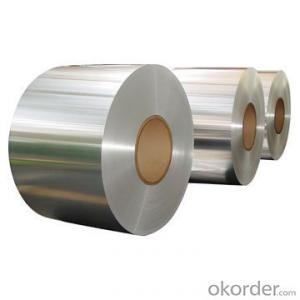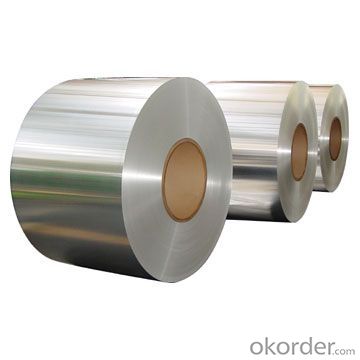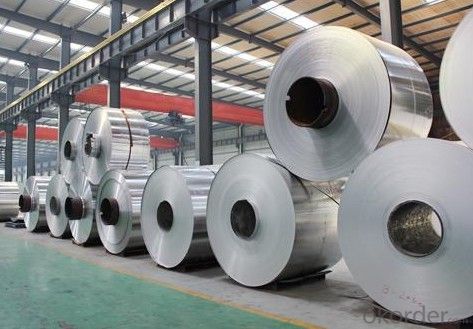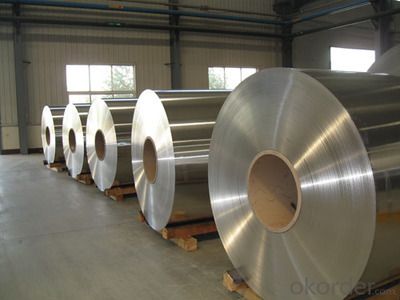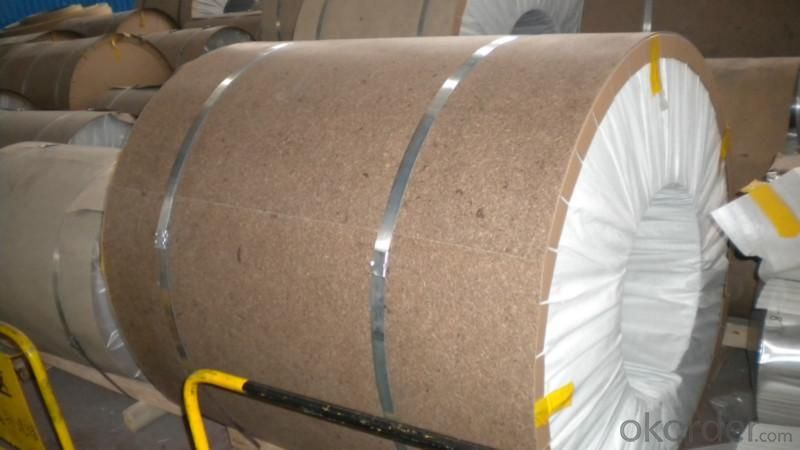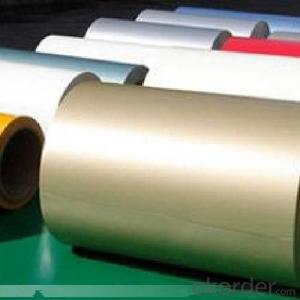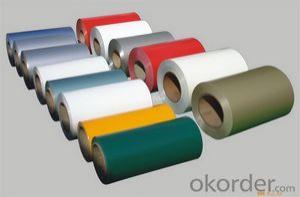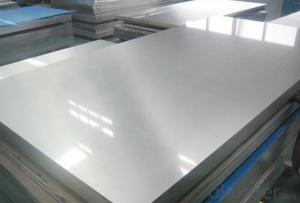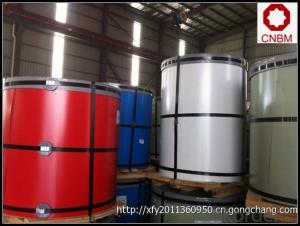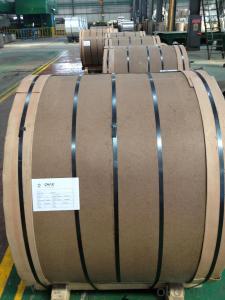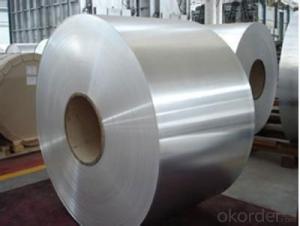Coil Coated Aluminum Sheet - China Manufacturer Price 3003/8011 Aluminum Coils for Cookware
- Loading Port:
- Shanghai
- Payment Terms:
- TT OR LC
- Min Order Qty:
- 7 m.t.
- Supply Capability:
- 10000 m.t./month
OKorder Service Pledge
OKorder Financial Service
You Might Also Like
Specification
Product Description & Specifications
Aluminium Coils
1.Alloy: 3003, 8011
2.Temper: O,H14H16,H18,H24 etc.
3.Thickness:0.2-15mm
4.Width: 2300mm max
5.Standards:ASTM-B209. EN573-1, GB/T3880.1-2006
Packing : Export wooden pallets
Quality of material: totally free from defects like white rust, oil patches, roll marks, edge damage, camber, dents, holes, break lines, scratches and free from coil set
Application : Mainly used insigns, billboards, building exterior decoration, bus body, high-rise buildings and factories wall decoration, kitchen sink, lamp, fan leaves, with pieces of electronic, chemical equipment, sheet metal processing parts, deep drawing or spinning hollowware, welding parts, heat exchangers, bell surface and disk, plate, kitchenware, decorations, reflective devices, ect
- Q: Is it possible to construct a bird feeder using an aluminum coil?
- <p>Yes, you can use an aluminum coil to make a bird feeder. Aluminum is lightweight, durable, and resistant to rust, making it a suitable material for outdoor use. To create a bird feeder, you can form the coil into a hanger or support structure, then attach a feeding platform or container where birds can access the food. Ensure the structure is stable and safe for birds to perch and feed. Remember to use appropriate tools and safety measures when working with aluminum, and consider painting or coating the coil to enhance its appearance and protect it from the elements.</p>
- Q: Can we provide raw materials, aluminium coils and aluminum panels for several integrated ceilings?
- You go to my space, add my QQ bar, I do aluminum, aluminum coil, aluminum wafer, and I also want to know about the requirements of integrated ceiling ~ ha ha!
- Q: This question asks if aluminum coils are susceptible to rusting.
- <p>Aluminum coils do not rust in the traditional sense. Aluminum reacts with oxygen in the air to form a thin, protective layer of aluminum oxide on its surface, which prevents further corrosion. This oxide layer is different from rust, which is iron oxide. While aluminum can tarnish or corrode under certain conditions, such as exposure to certain chemicals or harsh environments, it does not rust like iron or steel. Proper storage and handling can help maintain the integrity of aluminum coils and prevent any form of corrosion.</p>
- Q: Can aluminum coils be used in curtain wall systems?
- Yes, aluminum coils can be used in curtain wall systems. Aluminum is a popular material choice for curtain walls due to its lightweight nature, durability, and corrosion resistance. Aluminum coils can be easily formed and shaped to create the desired profiles for curtain wall systems. Additionally, aluminum is available in a wide range of colors and finishes, allowing for customization and design flexibility. The use of aluminum coils in curtain wall systems also offers energy efficiency benefits, as aluminum has good thermal conductivity properties. Overall, aluminum coils are a suitable and commonly used material in the construction of curtain wall systems.
- Q: How do aluminum coils compare to brass coils in terms of corrosion resistance?
- In terms of corrosion resistance, aluminum coils generally outperform brass coils due to the presence of a natural oxide layer on aluminum's surface. This layer acts as a protective barrier, shielding the metal from moisture and other corrosive elements. On the other hand, brass coils, made from copper and zinc, are more vulnerable to oxidation and corrosion. Although brass coils may develop a protective patina over time, it is not as effective as the oxide layer found on aluminum coils. As a result, aluminum coils are commonly chosen for applications that require high corrosion resistance, such as in marine or coastal environments.
- Q: This question asks for the method to calculate the weight of an aluminum coil given its size.
- <p>To calculate the weight of an aluminum coil, you need to know its dimensions and the density of aluminum. The formula to calculate the weight is: Weight = Volume 脳 Density. First, determine the volume of the coil by multiplying its length (L), width (W), and thickness (T): Volume = L 脳 W 脳 T. The density of aluminum is approximately 2.7 grams per cubic centimeter (g/cm鲁). Convert the volume to cubic centimeters if it's not already. Then, multiply the volume by the density to get the weight in grams. To convert grams to kilograms, divide by 1000. This will give you the weight of the aluminum coil.</p>
- Q: What is the maximum temperature that aluminum coils can withstand?
- The maximum temperature endurance of aluminum coils is determined by several factors, including the specific alloy composition, thickness, and application. In general, aluminum coils are renowned for their remarkable heat conductivity and ability to resist high temperatures. Frequently utilized aluminum alloys, such as 3003 or 5052, can endure temperatures of approximately 300-350 degrees Fahrenheit (150-175 degrees Celsius) without experiencing significant deformation or damage. Nevertheless, it is important to be aware that surpassing this temperature range can compromise the structural integrity of the aluminum coils, resulting in distortion, melting, or even combustion. Moreover, prolonged exposure to elevated temperatures can also diminish the overall strength and performance of the aluminum coils. Therefore, it is essential to refer to the manufacturer's specifications and guidelines for the specific aluminum alloy and application in question to ascertain the maximum safe temperature limit that the coils can withstand.
- Q: How do aluminum coils compare to stainless steel coils in terms of durability?
- When it comes to durability, there is a notable distinction between aluminum coils and stainless steel coils. In general, stainless steel coils are regarded as more long-lasting compared to their aluminum counterparts. This is primarily due to the fact that stainless steel possesses exceptional resistance to corrosion and has a longer lifespan. Stainless steel's resistance to corrosion is higher, making it ideal for utilization in challenging settings or situations where exposure to moisture, chemicals, or high temperatures is prevalent. It is less prone to rusting or developing corrosion spots, ensuring a lengthier existence and preserving its structural integrity over time. On the flip side, aluminum coils are more susceptible to corrosion, particularly in environments with high humidity, saltwater, or acidic conditions. To enhance their corrosion resistance, aluminum coils are often coated or treated. However, despite these measures, they may still be susceptible to corrosion over time, which can compromise their durability. However, it is important to note that the durability of both aluminum and stainless steel coils can also be influenced by other factors including the quality of the materials, the manufacturing process employed, and the level of maintenance and care provided. Regular cleaning, appropriate storage, and preventive measures can contribute to extending the lifespan of both types of coils. To summarize, although both aluminum and stainless steel coils have their own advantages and disadvantages, stainless steel coils typically offer superior durability due to their heightened resistance to corrosion. Nevertheless, when determining the most suitable option for a specific situation, it is essential to also consider the specific application, environment, and maintenance practices involved.
- Q: Are aluminum coils suitable for electrical conductivity applications?
- Aluminum coils are well-suited for applications that require electrical conductivity. Aluminum is renowned for its exceptional electrical conductivity, ranking second only to copper among commonly used metals. With about 61% of the conductivity of copper, it is a dependable choice for various electrical purposes. Aluminum coils find extensive use in power transmission, transformers, and electrical motors due to their efficient electrical conduction capabilities. Moreover, their lightweight nature makes handling and installation in electrical systems easier. However, it is important to acknowledge that aluminum has higher resistance than copper, necessitating larger aluminum conductors to achieve the same electrical performance. All in all, aluminum coils serve as a fitting choice for applications that require electrical conductivity.
- Q: Explain the differences between aluminum coils and iron coils, including their properties and applications.
- <p>Aluminum coils and iron coils differ in material composition, weight, strength, and applications. Aluminum coils are made of aluminum, a lightweight, corrosion-resistant metal, while iron coils are made from iron, which is heavier and more prone to rust. Aluminum coils have a lower density, making them ideal for applications where weight is a concern, such as in construction or automotive industries. They also have excellent electrical and thermal conductivity. Iron coils, on the other hand, are stronger and more durable, making them suitable for heavy-duty applications like construction reinforcement and machinery parts. Iron is also magnetic, which is an advantage in certain applications. However, iron is more susceptible to corrosion and requires protective coatings or treatments to extend its lifespan.</p>
Send your message to us
Coil Coated Aluminum Sheet - China Manufacturer Price 3003/8011 Aluminum Coils for Cookware
- Loading Port:
- Shanghai
- Payment Terms:
- TT OR LC
- Min Order Qty:
- 7 m.t.
- Supply Capability:
- 10000 m.t./month
OKorder Service Pledge
OKorder Financial Service
Similar products
Hot products
Hot Searches
Related keywords
